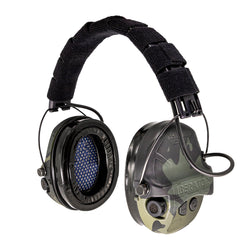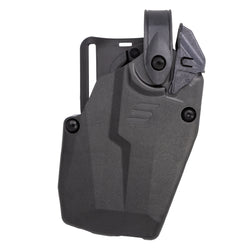February of 2024 has been full of 2A lawsuits. The news is mostly good, though we’re once again pinning our hopes on how the Supreme Court might eventually rule. Or if they will rule at all.
This month takes us to Maryland, Hawaii, California, and Washington, DC. Let’s get to it.

AWB Case to the Supreme Court?
The Second Amendment Foundation (SAF) and the Firearms Policy Coalition (FPC) are challenging Maryland’s “assault weapons” ban in Bianchi v. Brown. They won in Federal District Court, but the anti-2A 4th Circuit Court of Appeals is playing games to keep from hearing Maryland’s appeal. That’s a sign that they know the Supreme Court will probably strike down the law if the case reaches that level.
The 4th Circuit issued a stay keeping the ban in place, of course. SAF and FPC are tired of the 4th Circuit’s obfuscation, so the plaintiffs have filed for a Writ of Certiorari directly to the United States Supreme Court. They’re asking the high court to step in before the 4th Circuit issues its ruling, if it ever does.
The plaintiffs base the petition upon the following simple question: “Whether the Constitution allows the government to prohibit law-abiding, responsible citizens from protecting themselves, their families, and their homes with semiautomatic rifles that are in common use for lawful purposes.”
It seems straightforward, but several courts have engaged in truly staggering mental gymnastics in justifying such a prohibition. This brilliant move by the SAF and FPC isn’t without precedent. The equally anti-2A 7th and 9th Circuits are playing the same kinds of games. Honestly, the Supreme Court will probably deny the motion. But it will still put the justices on notice that the appellate courts are blatantly defying the Heller, McDonald, and Bruen Decisions.
The Supreme Court directly ordered the 9th Circuit to reconsider California’s AWB in light of the Bruen Decision. That was almost two years ago. But they instead kicked it back down to the Federal District Court level, where Judge Roger T. Benitez (peace be upon him) ruled it unconstitutional. Again.
The 9th Circuit took the appeal, stayed Benitez’s decision, and the case fell into a black hole. The 7th Circuit is doing the same with the Illinois AWB. In fact, two plaintiffs challenging the Illinois law have also filed for Cert, just as the Bianchi plaintiffs have.
This could be the beginning of something big. And by big, I mean it could end this “assault weapons” nonsense for good. The Supreme Court may or may not take it up, but at least SAF and FPC are letting them know how some Circuit Courts are defying their directives.
Hawaii Supreme Court Ignores the Second Amendment
Hawaii might be the nation’s most anti-gun state. Often overshadowed by California, New York, and other mainland states, Hawaii nonetheless restricts its citizens’ 2A rights just as egregiously. But the Hawaii Supreme Court has hit a new low.
Honolulu resident Christopher Wilson was charged last year with carrying a firearm without a permit. Never mind that Hawaii makes obtaining a permit as difficult as possible, much as New York does. The judge refused to convict Wilson, saying the law violated his right to keep and bear arms under the US and Hawaii Constitutions. The Hawaii Constitution states that, “A well regulated militia, being necessary to the security of a free state, the right of the people to keep and bear arms shall not be infringed.” That’s the US Constitution’s Second Amendment, word for word.
But the Hawaii Supreme Court doesn’t like the Second Amendment, and they aren’t shy about saying so. The Court unanimously overturned the lower court’s decision, writing that “We read those words differently than the current United States Supreme Court. We hold that in Hawai’i there is no state constitutional right to carry a firearm in public.”
The Court says that old laws are meaningless today. I’ll quote the decision, penned by Justice Todd Eddins, directly. It sounds more like a college-aged anti-2A activist rather than a supposedly seasoned judge: “The thing about the old days, they the old days,” Eddins wrote. But it gets better: “Get with the times, old man! As the world turns, it makes no sense for contemporary society to pledge allegiance to the founding era’s culture, realities, laws, and understanding of the Constitution.” The direct shot at Heller, McDonald, and Bruen aside, I wonder if they feel the same about the First Amendment.
This decision is so chock full of holes that a first-year law student could debunk it. Assuming they don’t attend the same law schools as the Hawaii justices. Eddins literally wrote that carrying a gun doesn’t square with the “spirit of Aloha.” That’s his formal legal opinion. Wilson is appealing. Here’s hoping the Supreme Court reminds the Hawaii Court what the Constitution says and means, including the 2A.
Justice Department Takes Crucial 2a Case to the Supreme Court
The US Justice Department is appealing Cargill v. Garland to the Supreme Court. That case challenges the ATF rule banning bump stocks, which the 5th Circuit ruled unconstitutional. The Supreme Court has accepted the case, and we could get a ruling sometime this year.
Chances are good that the high court will uphold the 5th Circuit’s finding that the ATF’s rule carries the weight of federal law and is therefore invalid. Not only that, but people can also go to prison. Only Congress is granted that power. The Court has recently taken a dim view of the Executive Branch usurping legislative power, so prospects are likely good.
Either way, this could be a harbinger for how other suits challenging ATF rules might go.
NSSF Wins Important 2A Victory in California
The National Shooting Sports Foundation (NSSF) recently scored a big 2A win against the state of California. The Golden State passed the “Firearm Industry Responsibility Act,” which allows frivolous civil suits against gun manufacturers when criminals misuse their products. You know, kind of like suing Ford or General Motors if a drunk driver kills someone while driving one of their vehicles.
US District Judge Andrew Schopler granted a preliminary injunction against the law’s enforcement, saying it violates the Constitution’s Interstate Commerce Clause. Preliminary injunctions are only issued if the plaintiff stands a good chance of winning on the case’s merits. The Commerce Clause violation is valid because the law includes gunmakers who do not operate in California, allowing them to be sued even if the gun in question was lawfully sold in another state. Pretty typical Sacramento thinking, considering they do that with other products, and even taxes.
NSSF Senior Vice President and General Counsel Lawrence Keane spoke to that tendency, saying that, “We are thankful the court enjoined the state from suing members of the firearm industry under this unconstitutional law that attempts to use the real threat of liability on commerce beyond California’s borders and impose its policy choices on its sister states.”
California will almost certainly appeal to the 9th Circuit. The 9th Circuit will certainly accept the appeal and issue a stay. But it’s a start. The law clearly violates the federal Protection of Lawful Commerce in Arms Act, as well as the Commerce Clause, so it should eventually be overturned. Eventually.
All 2A Roads Lead to DC
It stinks that certain appellate courts act more like politicians than judges. The Supreme Court’s directives in Heller and Bruen are quite clear, but the 4th, 7th, and 9th Circuits, among others, choose to view them as guidelines rather than law. And then we have the Hawaii Supreme Court directly challenging those rulings. It’s time the High Court shows them who’s boss. Maybe that’s just me, but I expect many others feel the same way.
I appreciate that the Supreme Court usually takes care to not go too far in its rulings, being aware of the Law of Unintended Consequences. But many lower courts continually ignore settled 2A law. I’m about ready for DC to hand out some judicial smackdowns. Here’s hoping they’re as fed up as we are. Until next month.










